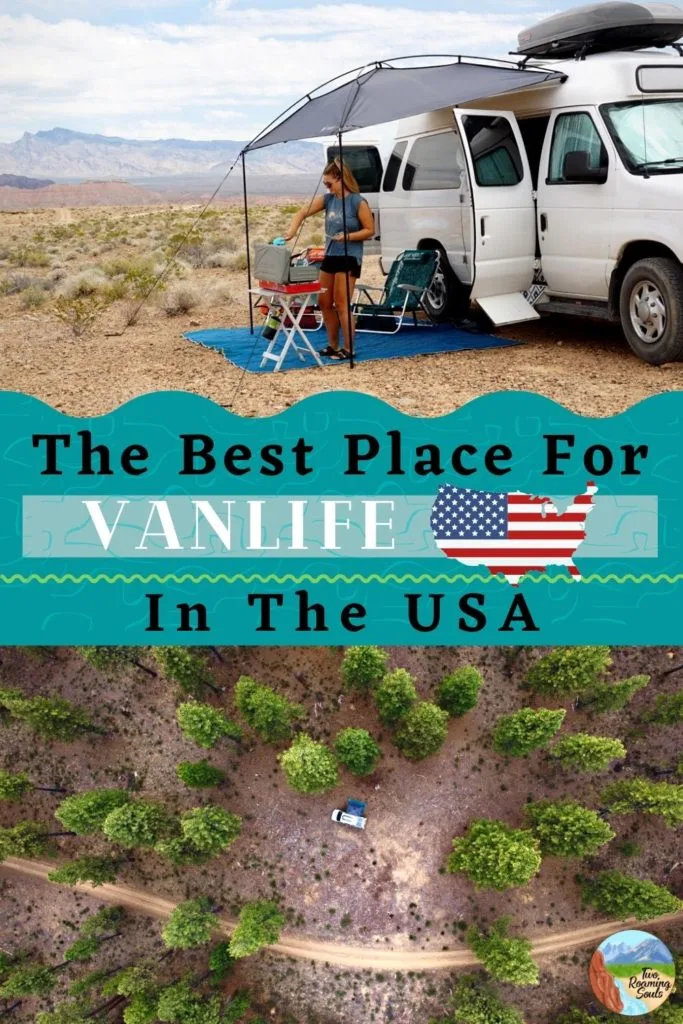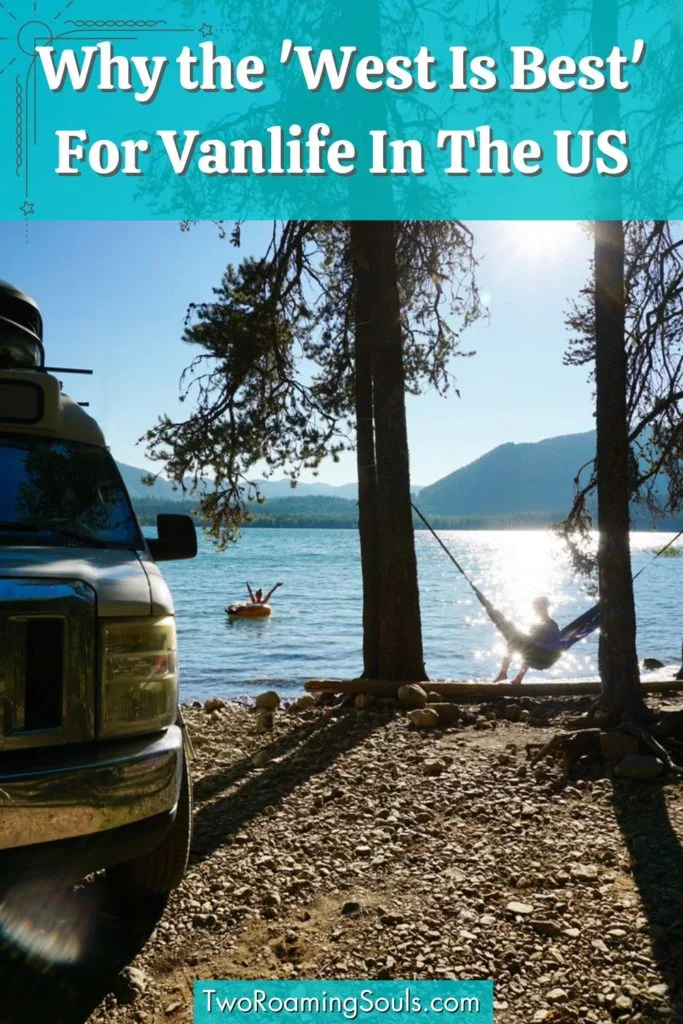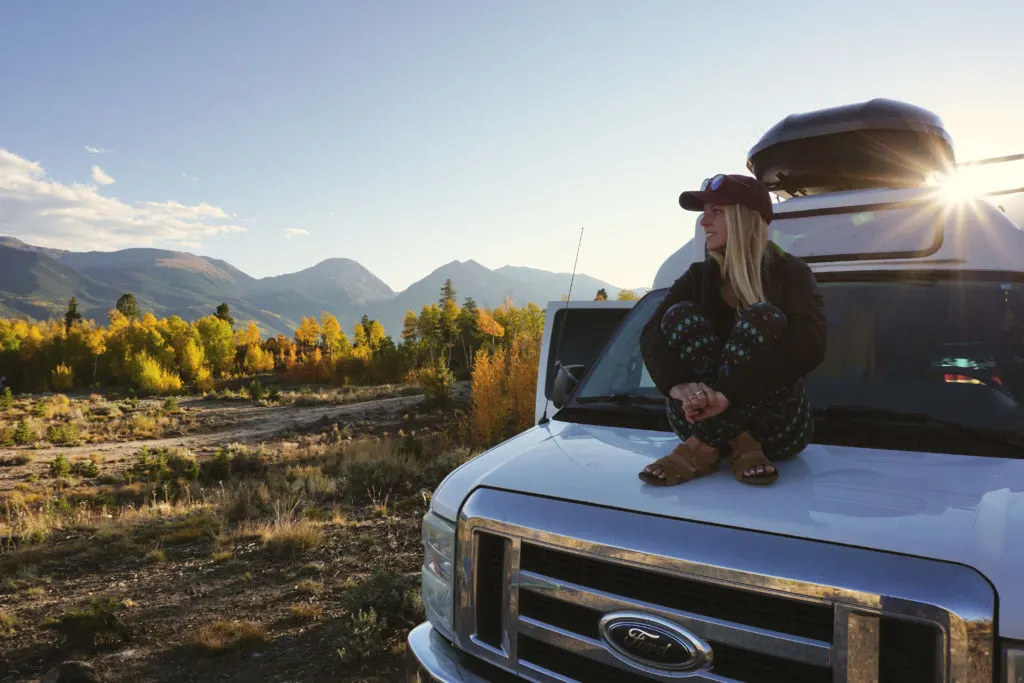
When it comes to living Vanlife in the US, the West is Best! When you have the ultimate freedom to travel anywhere, where will you spend your time?
There are plenty of arguments to be made for different regions of the United States. But we think the west is the best place for vanlife. We have lived full-time vanlife for over 4 years now, and location is an important part of our success.
Keep in mind that this is just our opinion, but we have some pretty solid reasons why.
Let’s get into it.
More Free Camping In The West
The majority of public land in the US is in the Western half of the country.
The Bureau Of Land Management (BLM) and the United States Forest Service (USFS) are tasked with managing huge portions of land in the United States.
But most of that land is all in the Western US (and it’s not even close).
This BLM map pretty much speaks for itself.
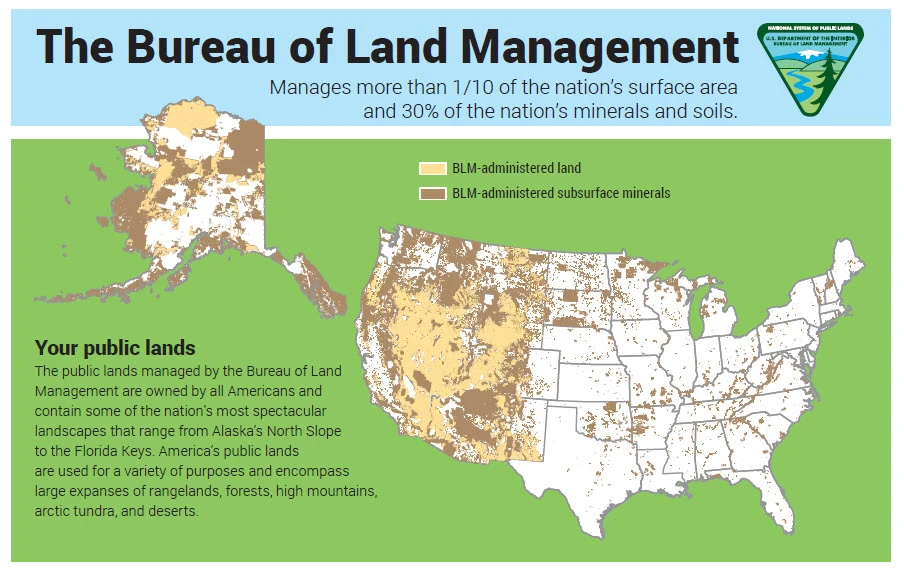
BLM land and USFS land both allow free dispersed camping, with some restrictions. And this helps solve Vanlife’s number one challenge: “Where am I going to park tonight?”
If you are unfamiliar with this type of camping, you can learn the basics from our guide to dispersed camping. Also called boondocking, wild camping, primitive camping, etc.
There are some restrictions: limited to 14 days in one spot, staying on designated roads/trails, and some places are off limits for resource or wildlife preservation.
Free Overnight Parking Is a Precious Thing
Free camping out west is truly a huge deal.
But FREE is the important word here. If you want to (can afford to) pay for campgrounds and RV parks 365 days per year, then you can do that anywhere in the country.
But if you are looking for specifically free camping or free overnight parking. Then your options are limited to dispersed camping, street parking, rest areas/truck stops, or businesses that allow overnight parking.
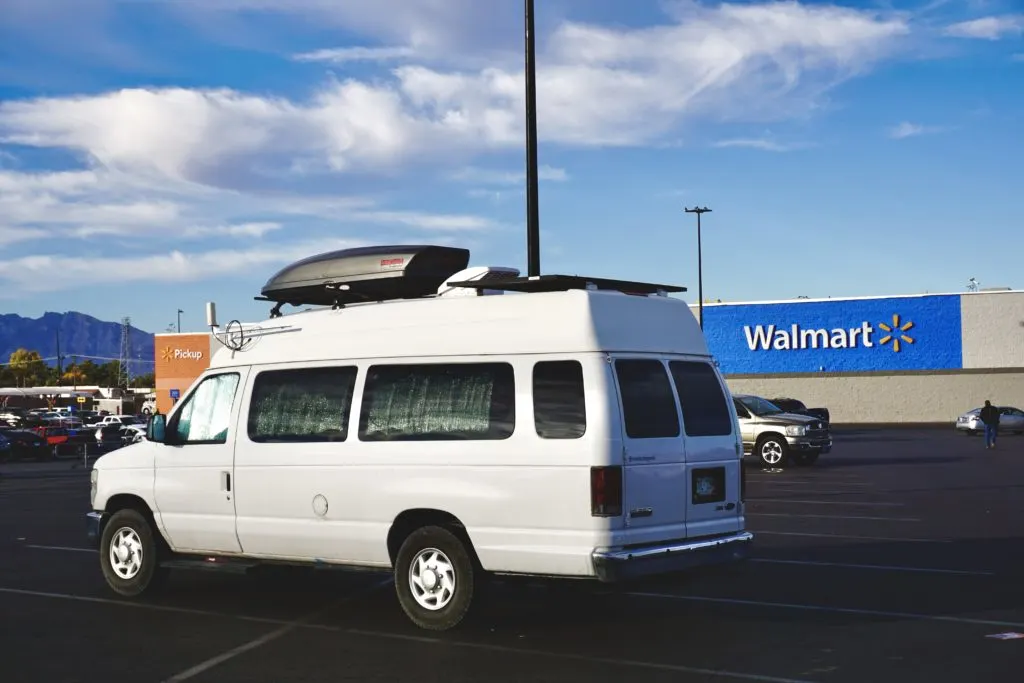
Every one of those options, besides dispersed camping, is typically limited to only one night in the same spot. And you should generally stick to the “arrive late, leave early” rule.
This creates a lifestyle where you are constantly moving and never in the same place two nights in a row. You have to pack up your home on wheels at least once per day.
And you can’t actually set up anything outside your van. Wanna put out a camp chair and watch the sunset? Wanna hang some clothes outside your van to dry? Fuggetaboutit.
And if (when) you end up somewhere that you are not welcome, be prepared to get the ole’ “move along” from police or security.
As vanlife has become more mainstream, it’s getting harder and harder to find good overnight spots. Businesses like Walmart, Cabelas, etc. have been changing their minds about allowing overnight parking.
And the more that average people get good at spotting campervans, stealth street parking becomes more difficult. You have to practically hide in your vehicle, limit your movement, turn off the lights, not go outside, etc.
We’ve done our fair share of this type of vanlife, and it really wears you down after a while. It’s hard to quantify the mental stress of never feeling like you are welcome, but it really adds up.
So, all this is to say, parking overnight where you are welcome is a game-changer. It removes that negative feeling associated with always hiding or fear of getting “the knock”.
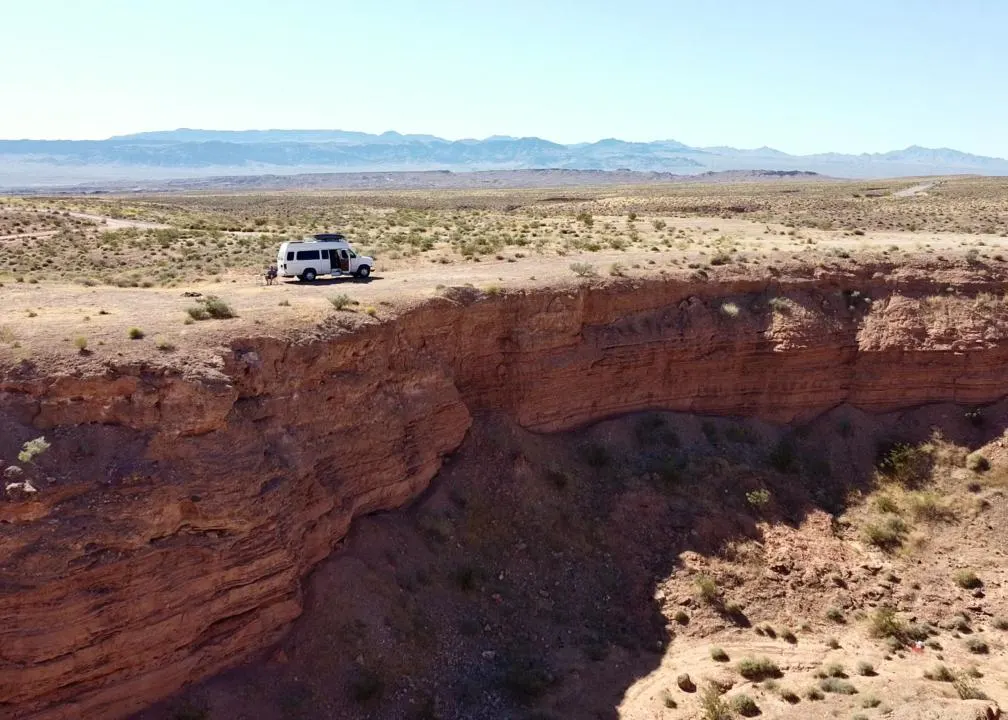
Also, a bonus benefit, you can urinate outside. Which significantly reduces the burden of the second biggest problem in vanlife: “How do I go the bathroom?” Going to public bathrooms every time you need to pee gets old really quickly.
Oh, and dispersed campsites are also usually a quiet place to sleep (no jabronies showing off how loud their Honda Civic is in the parking lot at 3am).
When you compare the lifestyle of dispersed camping versus other types of free overnight parking, for us, it’s a landslide victory for dispersed camping.
Low Humidity Out West
The climate in the West is generally drier than the rest of the country (Pacific Northwest excluded). And when it comes to living in a metal box, less humidity is better for several reasons.
Campervans are known for encountering moisture issues. People living inside create lots of moisture and that leads to mold, mildew, and rust problems.
Mold and Mildew Problems In Campervans
Dealing with moisture under your mattress is a very common problem that leads to mold and mildew.
That’s why installing a roof vent fan (or two) is pretty much step one for every single van conversion.
Rust Problems In Campervans
Insulating a campervan to successfully prevent condensation is another moisture-related issue that can lead to rust problems.
Low Relative Humidity = Better Comfort
Lastly, living in a van means experiencing weather very intensely. And low humidity makes temperature extremes more bearable. It’s easier to cool off in hot weather with evaporative cooling (sweating) and cold air doesn’t feel quite as bone-chilling.
So for several important reasons, low humidity is beneficial for vanlife.
Elevation Weather Hacking
Elevation has a large impact on temperature. And out West, it’s easier to use that to your advantage.
Too hot? Drive somewhere higher in elevation. Too cold? Drive somewhere lower in elevation.
In other parts of the country, you typically need to drive much further north or south to achieve the same effect. But out west it often can be accomplished with a much shorter relocation.
Sunshine Is Power
The western US is the best place for vanlife because it generally has a lot more sunshine than other parts of the country.
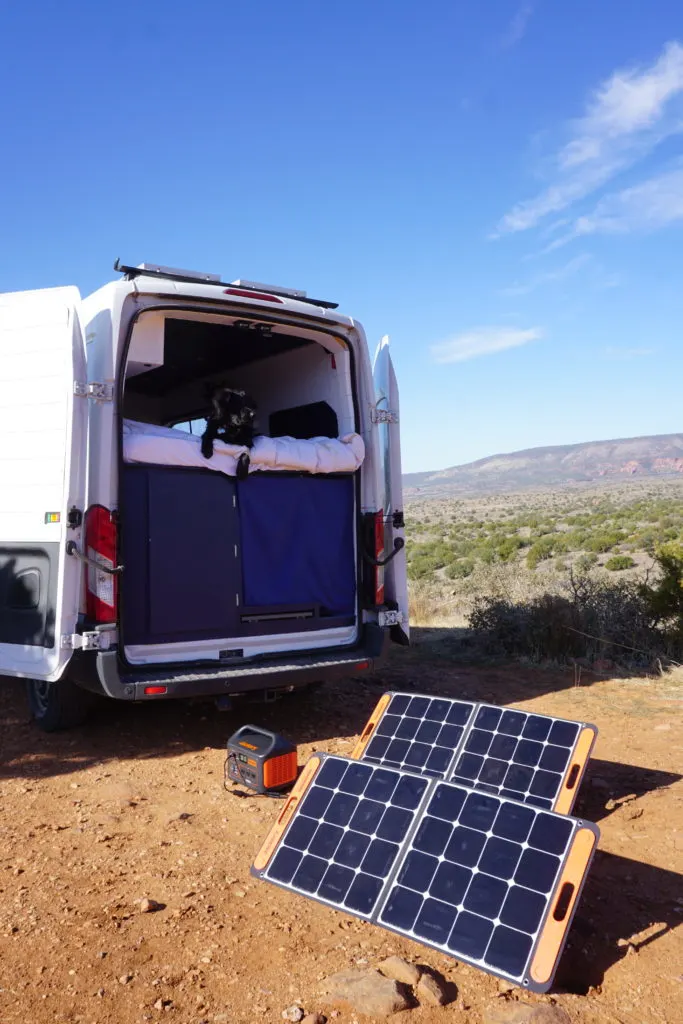
For many vanlifers, a steady stream of solar power is key to keeping the lights on (and the fridge, phone charger, Netflix machine, you get the idea).
Yes, it is possible to have electricity in campervan without Solar. But if you rely on solar energy to power your life, then an abundance of sunshine is a major factor.
And on a more personal note, we find that sunshine improves our overall mood.
Are There Downsides to Vanlife In The West?
There are, however, some downsides to vanlife in the Western US.
While it is totally possible to live a more urban/suburban vanlife in the West, most of the downsides of vanlife in the West revolve around being far from civilization.
If you are indeed taking advantage of dispersed camping, then here are some of the potential negatives.
Far Away From Jobs
It’s difficult to commute to a traditional job at a physical location.
Some dispersed camping locations are close to towns and cities, but in general, most dispersed campsites are at least 30 minutes from the nearest town (often much farther).
And it’s also often on rough roads that are not fun to drive twice a day.
Long Drives
Somewhat related is just the fact that things in the West are more spread out. So vanlife-ing out here means getting used to longer drives for most things.
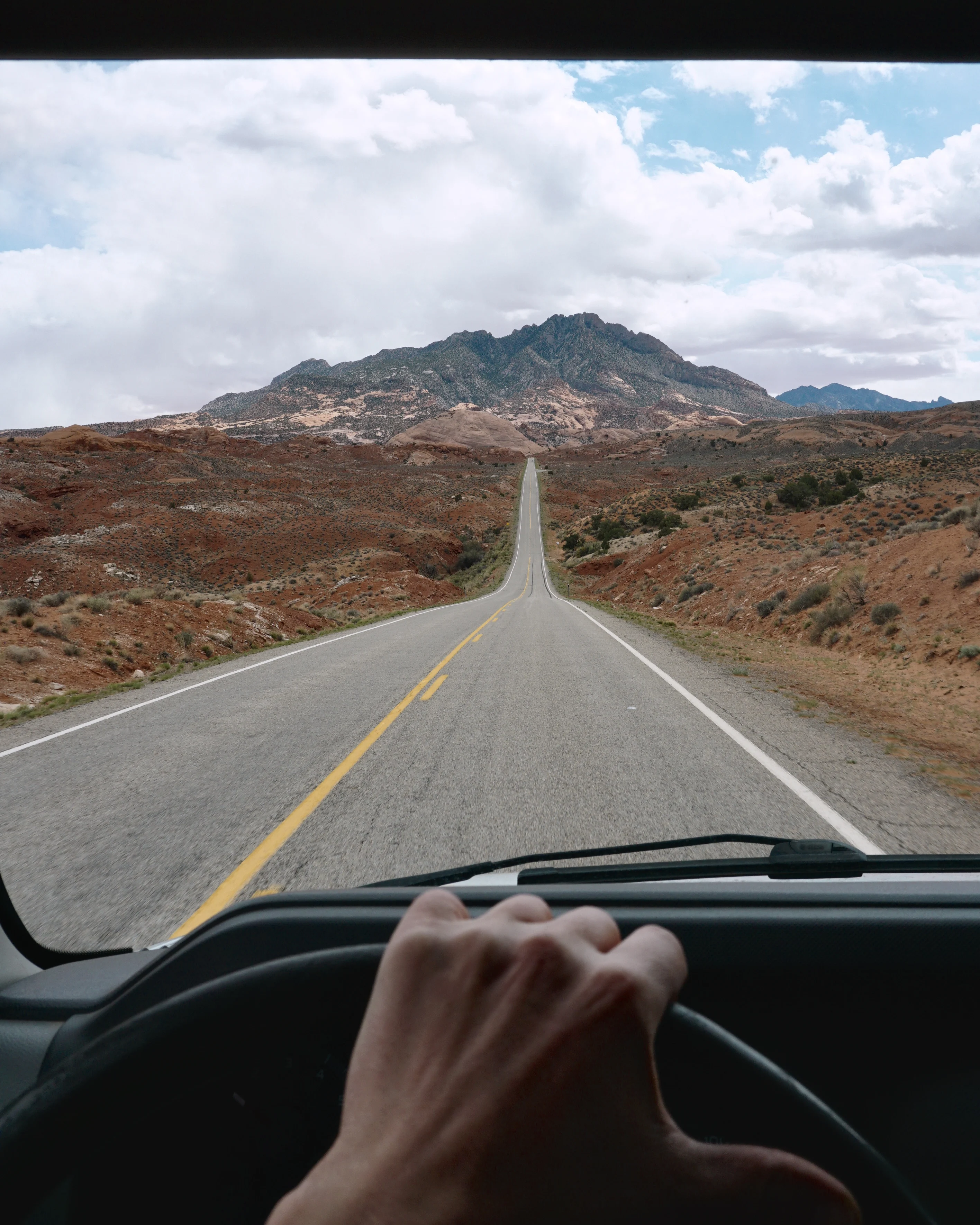
A 3-hour drive in the northeast might take you through 4 different states, but out west, that might just be half of a single state.
Weak Cell Signal
The farther you are from civilization, the less chance you find usable cell signal. And if you are trying to work remotely from your campervan, then good cellular signal is a must.
Two common solutions to this are cell signal boosters, like WeBoost. Or satellite-based internet, like Starlink. But both come with additional cost, and are not without their own limitations.
Not Near Emergency Services
If you have a medical emergency, you may be very far from paramedics and hospitals. This is a legitimate concern, more so for older folks or people with known health issues.
You are not near police if you have an emergency involving theft or violence. But my stance has always been, the fewer people are around, the less chance of negative encounters with people.
Animal encounters are another fringe concern (pretty much just bears). With a few exceptions, like Lake Tahoe and Yosemite, and you will likely never have a problem with bears that can’t be solved by just locking the doors.
Your Campervan Can Get Stuck
Venturing into dispersed camping areas almost always means driving dirt roads. Whenever you go off-roading there is a chance of breaking down or getting stuck.
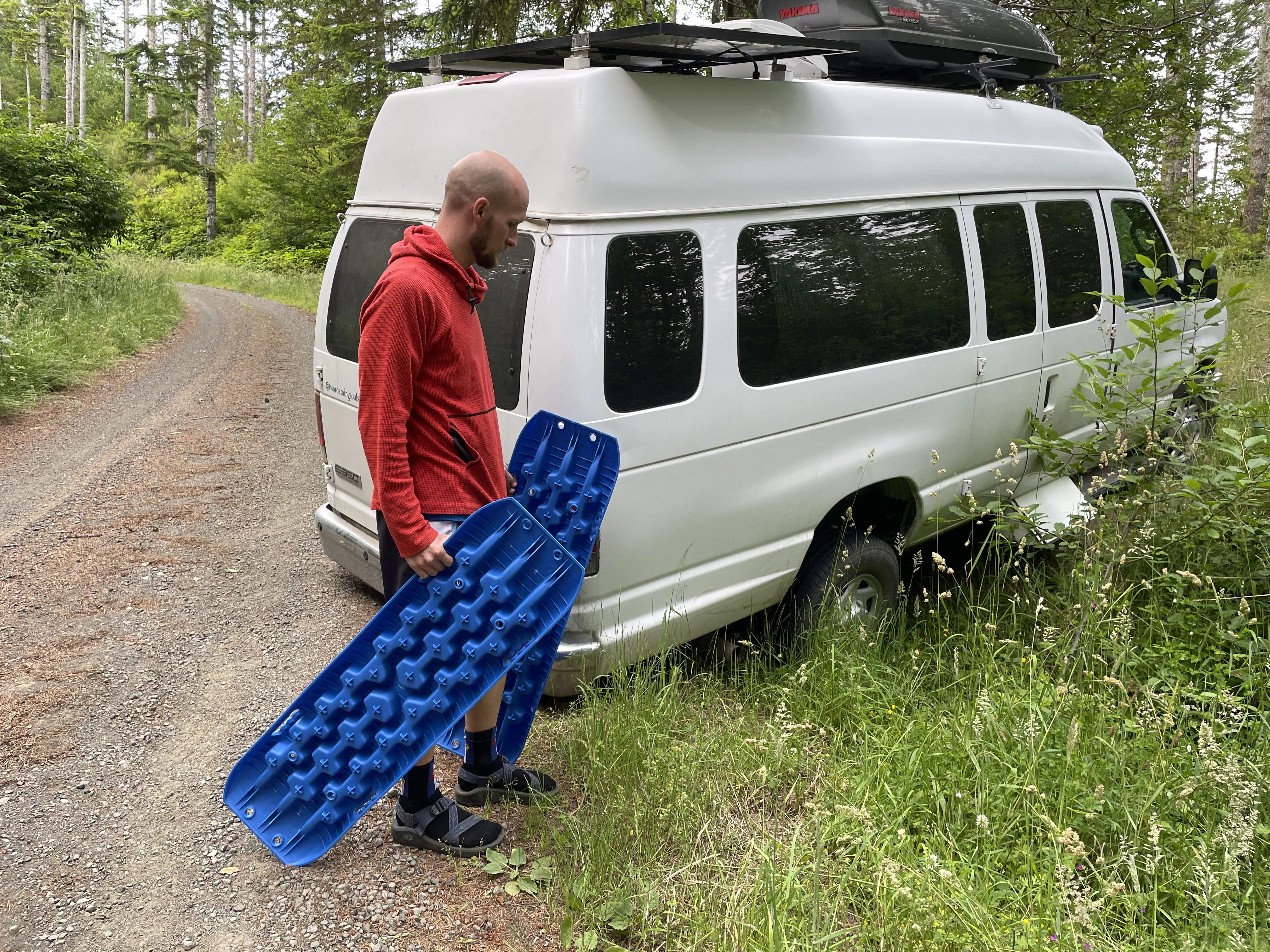
You can easily mitigate a lot of this risk with common sense and carrying some basic campervan recovery gear that we recommend. And you may not even need a 4×4 van to get to some incredible off-grid places.
Loneliness
The last downside of Vanlife in the West is loneliness. If are doing solo vanlife and spend lots of time camping in remote places, then you can easily get lonely.
Not to say that proximity to other people is a guaranteed cure for loneliness (but it’s certainly a good place to start).
Emily and I are lucky enough to have each other, so we can’t really speak to the challenges of solo vanlifers (we have so much respect for the solo people).
But even the two of us struggle to meet (and retain) new friendships on the road.
For many people, camping is their escape from society. So the act of meeting new people is often at odds with camping culture. Plus, many vanlifers can be intentionally standoff-ish to protect their own safety.
So loneliness is a legitimate concern for people living “off-grid”.
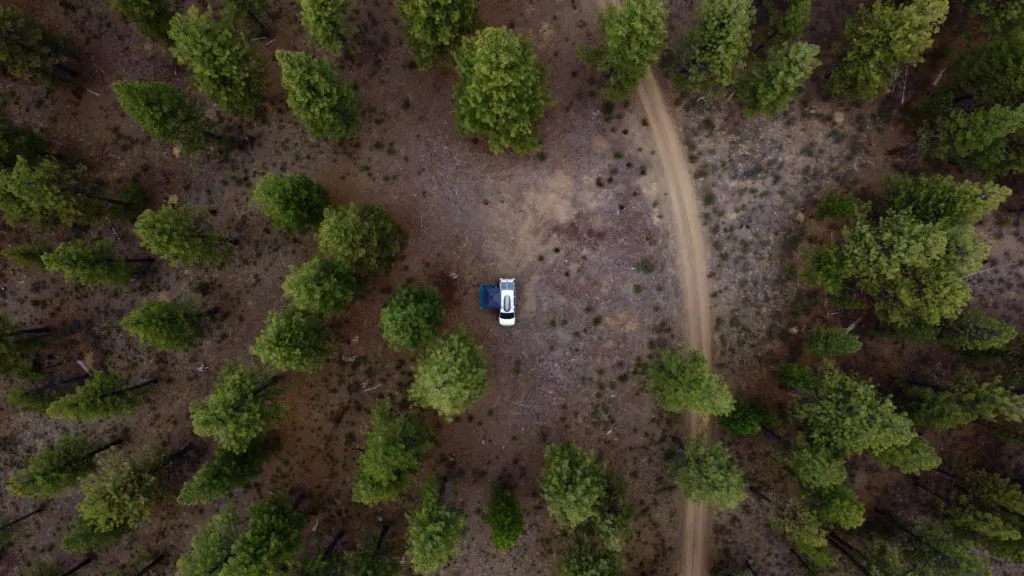
But good ways to combat this are by attending nomad and vanlife meetups. Aim for the more informal vanlife culture and activities meetups to meet actual vanlifers, otherwise the “Vanlife Expos” are more like companies just trying to show off yet another 100k+ Sprinter Conversion.
Try finding other people with similar interests on social media. Or just being friendly when going about your regular hobbies (hiking, rock climbing, yoga, basket weaving, whatever).
Side Note: Finding out your “why” for doing vanlife is an important part of being successful. If your only goal is to live in a metal box on wheels, you will quickly find out that it’s not really that great. So figuring out your “why” for doing vanlife will give you ultimate direction and motivation to push through the hard days.
Conclusion | Why The West Is The Best Place For Vanlife
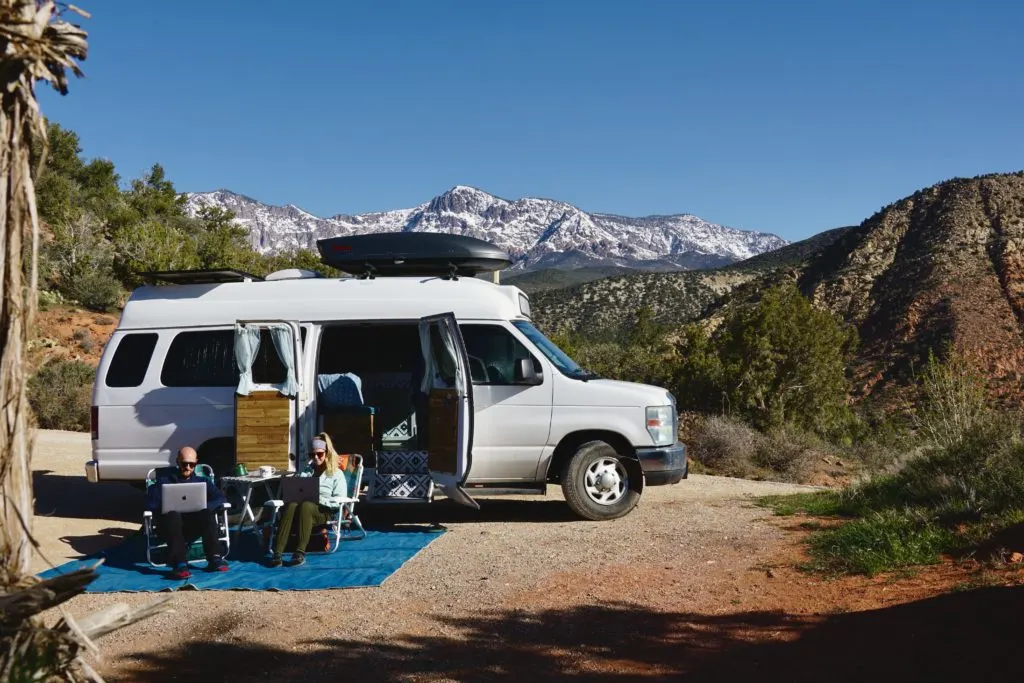
The real tangible benefit to Vanlife in the west is the vast array of public land open to free camping.
Dispersed camping can greatly reduce your vanlife living expenses, and thus financial stress. And simply living somewhere that you are allowed to be reduces emotional stress.
And the low humidity is also a sometimes underrated benefit.
Now just for our personal preference, the West has more of the things that keep our passion for life going. That is, big adventures in the great outdoors!
Not everyone is the same, and we certainly believe in a “to each their own” mentality.
But why is the West the best place for Vanlife?
Livin’ free and easy….. (and dry).
Share ‘Why Is The West Is Best For Vanlife’ On Pinterest!
